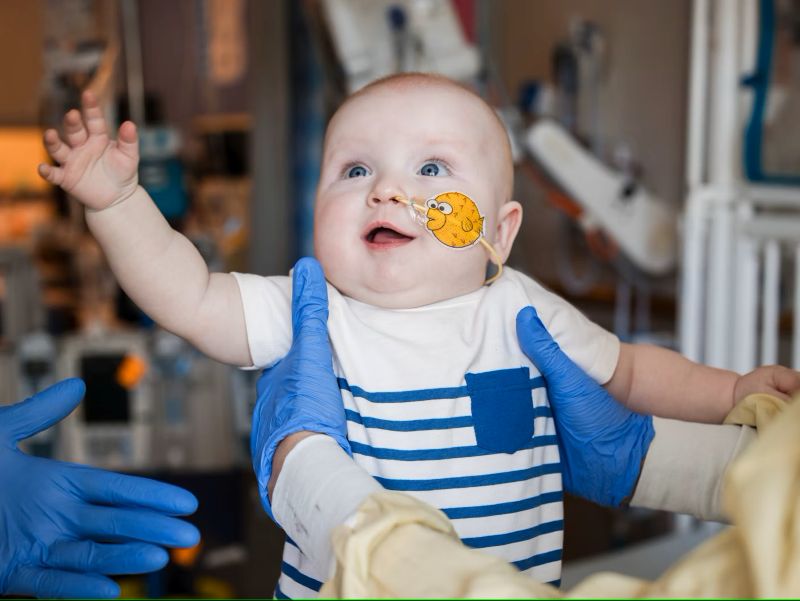One-of-a-Kind Gene Therapy Saves Infant from Rare Genetic Disorder in Medical Milestone
In a medical breakthrough that could transform the future of rare disease treatment, a nine-month-old baby named KJ Muldoon has become the first patient to receive a customized CRISPR gene editing therapy for a life-threatening genetic disorder. The remarkable treatment took place in Philadelphia, where a dedicated team of doctors tailored a cutting-edge therapy specifically for KJ’s unique condition.
KJ was born with a rare metabolic disorder known as a urea cycle disorder, which prevents the body from properly breaking down protein. As a result, dangerous levels of ammonia can build up in the bloodstream, leading to severe neurological damage or even death if left untreated.
Faced with a heart-wrenching decision, KJ’s parents, Nicole and Kyle Muldoon, were told they had two options—either pursue a liver transplant or take a leap of faith with a never-before-used therapy designed just for their child. They chose to move forward with the experimental gene editing treatment.
The therapy used CRISPR, a revolutionary tool that can precisely edit DNA within the body’s cells. In KJ’s case, the faulty gene responsible for his condition was located and replaced with a corrected version—effectively reprogramming his cells to function properly.
“The CRISPR technology was designed to target the exact spot in KJ’s DNA that was causing the problem,” said one of the leading physicians involved in the treatment. “This kind of precision allows us to fix the root of the disease instead of just managing its symptoms.”
KJ received his first infusion in February, followed by additional doses in the months that followed. The results have been nothing short of extraordinary. His condition has shown significant improvement, giving his family hope and relief after months of uncertainty.
“He’s a fighter,” said Kyle, reflecting on their journey. “We’ve seen his strength shine through time and again.”
As KJ continues to recover, his story stands as a beacon of hope for countless families affected by rare genetic diseases. This personalized treatment may soon pave the way for a new era in medicine—one where no condition is too rare to be cured.

COMMENTS (0)
Sign in to join the conversation
LOGIN TO COMMENT